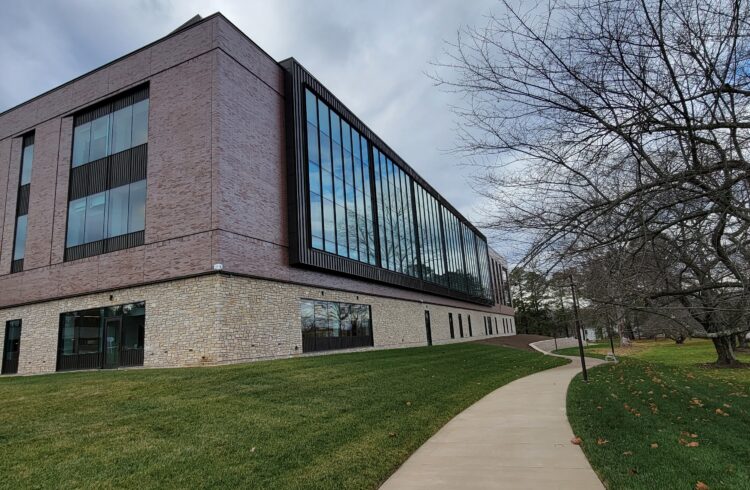
Some of the people behind PositiveLinks: Tianyi Jin, web developer (from left); Rebecca Dillingham, MD, MPH; and Marika Grabowski, clinical data manager.
A smartphone app designed to improve care for people living with HIV has increased users’ consistency in doctor visits and improved their health outcomes, a new study has found.
Users of the PositiveLinks intervention developed at the School of Medicine showed marked improvement in sticking to their treatment programs. Users had improved consistency in doctor visits at both six and 12 months, and the percentage of people with “undetectable HIV viral loads” – a key outcome for individuals living with HIV – increased significantly.
“PositiveLinks was developed with significant input from our patients for the entire duration of the project,” said Rebecca Dillingham, MD, MPH, of UVA’s Ryan White Clinic, a major provider of HIV care in Virginia. “We believe that this collaborative approach to creating and testing a clinical intervention made it more appealing to our patients and contributed to the terrific outcomes.”
Managing HIV with PositiveLinks
The PostiveLinks app offers a powerful mix of engagement, social interaction and access to care providers. It provides appointment reminders, important health information and daily questions about stress, mood and medication adherence. In addition, it features a virtual support group where users can interact anonymously to ask questions, share their stories and find strength in the journeys of others.
UVA created the app to address serious healthcare gaps for people living with HIV. The study researchers note that nearly half of people diagnosed with HIV never establish regular care. And that can have serious consequences, potentially leading to death.
To evaluate the PositiveLinks app’s effectiveness, the researchers recruited study participants at the Ryan White Clinic and in the local community. To be eligible, patients had to have received their diagnosis within 90 days of enrollment or to have suffered a lapse in care or be in danger of a lapse. Of the 77 participants enrolled, 72 percent had incomes below the federal poverty level.
The results were striking:
- Only 51 percent of participants attended HIV clinic visits regularly at the beginning of the study. That increased to 88 percent at six months and 81 percent at 12 months.
- Participants whose viral load had been suppressed – the desired state – increased from 47 percent to 87 percent at six months. It stood at 79 percent at 12 months.
- Users accessed the app frequently: The mean number of launches per participant was 188 at six months and 312 at a year. Forty percent of participants continued to answer daily questions about medication adherence, stress and mood after 12 months.
Next Steps for PositiveLinks
While the researchers are continuing to improve the app, they have already rolled it out to serve more than 200 patients at UVA, and they are replicating the program at Inova in Northern Virginia as well as in Lynchburg, Va. It’s also being used in Irkutsk, Russia, to support people co-infected with HIV and tuberculosis.
Findings Published
The researchers have published their findings in the scientific journal AIDS Patient Care and STDs. The research team consisted of Dillingham, Karen Ingersoll, Tabor E. Flickinger, Ava Lena Waldman, Marika Grabowski, Colleen Laurence, Erin Wispelwey, George Reynolds, Mark Conaway and Wendy F. Cohn.
The work was supported by the MAC AIDS Fund and AIDS United.
MORE: How the Affordable Care Act affected HIV care in Virginia.



